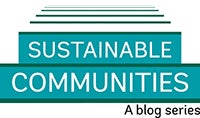
Waste – its generation, collection, and disposal – is a major global challenge of the 21st century. Recycling waste drives environmental sustainability by reducing greenhouse gas emissions and stimulates the economy by supplying raw materials and packaging materials.
Waste pickers are the principal actors in reclaiming waste for the recycling industry. Across the world, large numbers of people from low-income and disadvantaged communities make a living collecting and sorting waste, and then selling reclaimed waste through intermediaries to the recycling industry. Where others see trash or garbage, the waste pickers see paper, cardboard, glass, and metal. They are skilled at sorting and bundling different types of waste by color, weight, and end use to sell to the recycling industry. Yet waste pickers are rarely recognized for the important role they play in creating value from the waste generated by others and in contributing to the reduction of carbon emissions.
Fortunately, around the world, waste pickers have been organizing and cities have begun to promote the virtuous circle that comes with integrating waste pickers, the world’s recyclers, into solid waste management.
Brazil was the first country to integrate waste pickers, through their cooperatives, into municipal solid waste management systems and the first to adopt a National Waste Policy, recognizing the contributions of waste pickers and providing a legal framework to enable cooperatives of waste pickers to contract as service providers. The national movement of waste pickers in Brazil was awarded a contract to clean the stadiums during the World Cup.
A recent national decree in Colombia mandated that cities across the country should develop solid waste management schemes that contract organizations of waste pickers to collect, transport, and sort recyclable waste.
In Pune, India, a waste picker cooperative SWaCH, supported by its parent union, Kagad Kach Patra Kashtakari Panchayat (KKPKP), received a contract from the city for waste collection from households. In Johannesburg, South Africa, a waste pickers’ cooperative has leveraged public and private partnerships to create a community recycling program. Opened in 2014 to serve 3,000 homes, the Vaal Park Recycling Centre is gradually expanding its reach.
The future for millions of waste pickers around the world hangs in the balance, depending largely on the policies and practices of municipal governments. Both the WIEGO network and the World Bank are developing programs and promoting policies that recognize and support waste pickers as an integral part of the solid waste sector, who make valuable contributions to cities, the environment, and their communities by reclaiming recyclables, and providing them with space and equipment to facilitate their important work.
What the waste pickers have to offer is quite clear: waste collection, sorting, reclaiming, and recycling services at a reasonable cost. What they want is also quite clear: recognition for the services they provide; access to waste; the right to bid for solid waste management contracts; trucks for hauling waste; a safe space and equipment for storing, compacting, bundling, and processing waste; and fair prices for the waste they collect and the recycled materials that they reclaim, process, and sell. Integrating waste pickers into solid waste management is the win-win option.




Join the Conversation